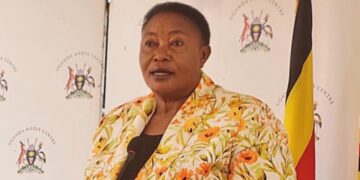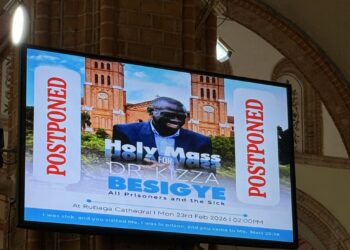U.S. authorities arrested a Colombian national suspected of taking part in the brazen assassination of Haitian President Jovenel Moïse at his home in Port-au-Prince last year, the Justice Department said in a statement Tuesday.
Mario Antonio Palacios, 43, was detained during a layover in Panama after he was deported from Jamaica, where he had fled. The Justice Department said he agreed to travel to the United States. A criminal complaint filed in the Southern District of Florida in November and unsealed Tuesday said that he gave “voluntary statements” to U.S. law enforcement officials during an October interview in Jamaica.
The former Colombian military officer remains in custody and appeared Tuesday in a U.S. district court in Miami. The Justice Department charged him with conspiracy to commit murder or kidnapping outside the United States and providing material support resulting in death, knowing that such support would be used to carry out the conspiracy to kill or kidnap.
The Justice Department said he faces a possible life sentence. Palacios is the first to face U.S. charges in Moïse’s killing and could prove essential in moving forward an investigation riddled with several pivotal and unanswered questions.
Moïse was shot 12 times and killed on July 7 and his wife, Martine, was wounded in the attack. His assassination remains a murky, chaos-laden whodunit. It involves suspects from several countries and allegations that Haitian officials have used the probe to crack down on political opponents rather than to prosecute Moïse’s killers.
Though Haitian officials have rounded up several dozen people in connection with the assassination, they have yet to charge any of them, provide a motive for the assassination or identify the plot’s architect. One suspect died of covid-19 in November.
The complaint alleges that Palacios was part of a group of some 20 Colombian ex-military personnel, several Haiti-based Haitian Americans and others who participated in the plot.
It said interviews and photos seized from electronic devices showed that the group trained in Haiti for several weeks to conduct what was initially an “arrest warrant operation” that would have seen the conspirators “extract” Moïse from Haiti in mid-June.
Palacios told U.S. law enforcement authorities that the plan was for the conspirators to wear black hoodies and capture Moïse at the airport, where he would be taken away by plane, according to the complaint, which added that the plan fell apart because the group could not secure a private plane.
The complaint alleges that Palacios said he learned on July 6 that the plan was to assassinate Moïse. It said that he and others “entered the president’s residence in Haiti with the intent and purpose of killing President Moïse, and in fact the president was killed.”
Investigators who have debriefed U.S. officials and relatives of the Colombian men detained in connection with the plot have previously suggested that the men weren’t aware of a mission to kill the president and thought they might have been recruited to arrest him. Colombian President Iván Duque and family members of the Colombian nationals have also said that most were told they were going to Haiti as bodyguards.
It was unclear whether Palacios was one of the former Colombian servicemen alleged to have participated in the assassination that the Pentagon has said received training by the U.S. military as active members of Colombia’s armed forces.
During his court appearance, Palacios spoke in Spanish and said via an interpreter that he did not know anyone in the United States and that his only income is a monthly Colombian military pension worth about $375, Reuters reported. His next court appearance is Jan. 31.
Palacios, also known as “Floro,” was part of a five-man group called the “Delta Team” that was tasked with entering Moïse’s bedroom during the attack, according to a copy of the Haitian National Police’s investigation report into the assassination obtained by The Washington Post.
“Being the only Black Colombian on the team, he in all likelihood managed to escape thanks to his skin color by managing to easily blend into the population,” the police posited.
Source; the Washington Post







































